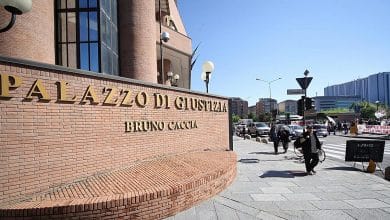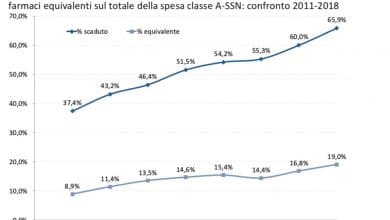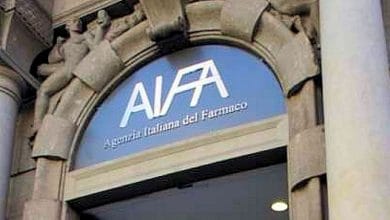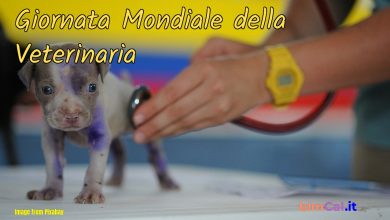
According to Codacons, the staunchest defenders of vaccines are in constant contact with the manufacturing companies
22/04/2017 – THE ITALIAN JOURNAL
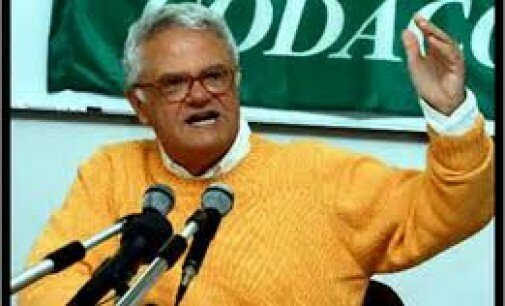 It is time to shed some light on the existing system of relations between institutions and vaccine manufacturers. This is what is claimed by a consumer association, Codacons, which presented a complaint to the Anti-Corruption Authority asking to ascertain the regularity of the relationships (including of an economic nature) that exist between the Italian doctors who have contributed to creating the National Vaccine Prevention Plan and the pharmaceutical companies that produce vaccines.
It is time to shed some light on the existing system of relations between institutions and vaccine manufacturers. This is what is claimed by a consumer association, Codacons, which presented a complaint to the Anti-Corruption Authority asking to ascertain the regularity of the relationships (including of an economic nature) that exist between the Italian doctors who have contributed to creating the National Vaccine Prevention Plan and the pharmaceutical companies that produce vaccines.
"After the very harsh reactions to the Vaccine Report service by many doctors who have invoked measures and sanctions, we believe it is no longer possible to postpone an in-depth investigation into the relationships between healthcare operators and drug companies - explains Codacons - Our aim is certainly not to attack individual doctors or the entire category, nor to endorse suspicions that have already appeared on various occasions in the press, but only and exclusively to obtain clarity in the interest of citizens and of the doctors themselves, and dispel any doubts on the subject.
The Codacons in the report added some episodes on which to deepen: "the Calendar of the National Vaccine Plan would be "the faithful copy" of the Calendar for life, published for the first time in Epidemiology & Prevention, November-December 2014, signed by 20 personalities including researchers and doctors, and sponsored by the drug industries. Again, "it would have been highlighted that more than half of the signatories of the Calendar for Life, some of whom were also part of the working group for the 2016-2018 National Vaccine Prevention Plan, would have found themselves in conflict of personal interests with pharmaceutical companies producing vaccines. Reference is made to: Bonanni Paolo and Carlo Signorelli of SITI (Italian Society of Hygiene, Preventive Medicine and Public Health) Walter Ricciardi of ISS and Silvestro Scotti of FIMMG (Italian Federation of General Practitioners) ). It would result in personal conflicts for 10 of the 20 signatories, in other words the 50% of the signatories would have personal conflicts of interest with pharmaceutical companies producing vaccines”.
In particular, the Codacons complaint asks to verify the relationships between Walter Ricciardi and the pharmaceutical companies Crucell, GSK, Pfizer, Sanofi Pasteur MSD; those of Carlo Signorelli with Pfizer, Sanofi Pasteur MSD, and Reckitt Benkiser; those of Paolo Bonanni with GlaxoSmithKline Biologicals SA, Sanofi Pasteur MSD, Novartis, Crucell/Janssen, and Pfizer; those of Silvestro Scotti with Sanofi Pasteur MSD.
All this considered, Codacons asked the Anac "to want to carry out all the necessary and useful investigations, surveillance, control, evaluation and verification acts to verify the regularity and transparency of the procedures adopted by the competent authorities, and by the related interlocutors, inherent to the administration and marketing of the hexavalent vaccine Infanrix Hexa and to the preparation of the New National Vaccine Prevention Plan for the two-year period 2016-2018".
Garattini: vaccines are safe but an anti-scientific mentality is gaining ground in Italy
The poisoned core is all there: «An anti-scientific mentality has developed in Italy». The diagnosis is a bit cutting, even if in many situations Silvio Garattini recognizes nuances and facets of a naturally complex theme. Researcher and professor of Pharmacology, director of the "Mario Negri" Institute for Pharmacological Research, he reassures everyone: "Vaccines are the best drugs on the market".
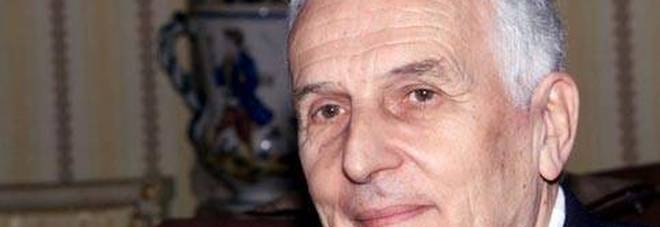 However, at least in some segments, the country seems to be regressing in its approach to science, vaccines and pharmacology. Where and when did the short happen, professor?
However, at least in some segments, the country seems to be regressing in its approach to science, vaccines and pharmacology. Where and when did the short happen, professor?
«By now we are witnessing the development of an anti-scientific mentality which does not only concern vaccines, but also many other topics: opposition to GMOs, the case of stamina, the use of homeopathy or natural herbs. All things that have fortunately invaded Italian society in a small part, but it is a very active part, which is concerned with sending messages on social networks, a very important tool used by these groups, and not instead by those who correct and disseminate ».
Is it the alleged, and then denied, correlation between vaccines and autism that has triggered the vaccination phobia? Or is there more?
«Yes, one factor has been exaggerated: the association between vaccinations and the presence of autism and therefore of damage to the central nervous system. An approach made by a doctor (Andrew Wakefield, ed) which had to withdraw its publication, and which was convicted and disbarred. But if the initial data made a great impression, the news that it was a fake was not equally widespread. Also because the idea arose that in reality all this was the result of the effort made by the pharmaceutical industry to hide who knows what».
In addition to conspiracy theories of various kinds, don't you think the poor perception of risk also plays a role?
«Of course, the other problem is that young parents have never witnessed the spread of diseases now protected by vaccinations. I am thinking of poliomyelitis: we have seen children die or become disabled. The lack of perception of the disease leads to thinking that vaccination is something more ».
A bit like what happened with measles: underestimated to the point of "forgetting" about vaccinations. The consequence is that cases have multiplied: 1,500 in 2017 compared to 800 last year. A paradigmatic example.
«In recent months, these are mostly cases related to adults who have not made the recalls. Furthermore, there is a large percentage of doctors and health professionals who do not set a good example. And if we continue not to vaccinate, we will have more and more cases of measles. It is not even a harmless disease, it can affect the respiratory tract and lead to serious forms of immunosuppression".
Anti-vaccine advocates often argue: "even without vaccines, I'm fine". But there is one detail: the so-called "herd immunity"
“Maybe he's fine, but maybe he infected someone. Herd immunity means that if a certain percentage of vaccination is reached, it is considered above the 95%, the disease has great difficulty circulating. It's like it doesn't exist."
In Puglia the vaccination coverage for measles is 85%.
"And it's very low."
Another due clarification: the vaccine is not a kind of "invulnerability serum".
“No, it only protects against that specific disease. Everyone remembers the withdrawal of the flu vaccine after some deaths, but the people who died were old or severely debilitated who would have died even without the vaccine. These are discourses that require a little competence and scientific culture, something that in our country is rather scarce even in those who form opinions and "bite" easily».
by Francesco G.GIOFFREDI – The Puglia newspaper – 04/22/2017
Related news: Codacons presents a complaint to ascertain the regularity of relations between provaccini doctors and pharmaceutical companies
Codacons: Anti-corruption authority investigates AIFA expenses
Doctor disbarred: Gava, golden opportunity to spread ideas
Vaccines, EU Commissioner: Anti-vaccine shame on you!
The Earth is flat. Here is the proof
The four theses that nail the doctor
Taken from "The four theses that nail the doctor”
GAVA «Doctors believe that vaccines do no harm also because they receive updates from pharmaceutical informants which are paid by the industry.
PALU. «It is not true that the industry is betting on vaccines. Meanwhile, there are four multinationals on vaccines and not hundreds and they do not invest in the vaccine because the vaccine is not very profitable given that it is done once or twice in a lifetime. If anything, the pharmaceutical industry pursues everyday, lifelong pills such as aspirin, blood pressure lowering pills, or cholesterol pills as much more profitable. Doctors cannot be blamed because they listen to pharmaceutical whistleblowers, they do it for thousands of drugs, not just vaccines, and in any case all have been previously authorized and evaluated by regulatory bodies ».
Note. Dr. Gava is the doctor disbarred from the medical register of Treviso. Professor Giorgio Palù is president of the European Society of Virology and of the Italian Society of Virology
Ed.: We don't know if there are still ISFs for vaccines, we think they have all been fired because, according to the producers, they are sold (the vaccines) through now all regional tenders, so the ISFs "are no longer needed". See "The dismissal of the ISF in 2010. The H1N1. The previous one from 2012”

